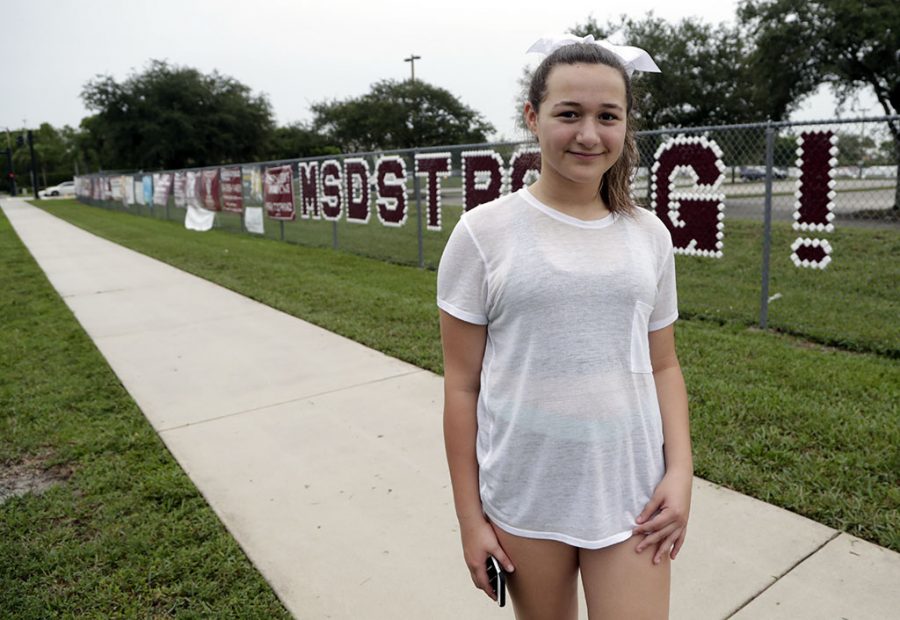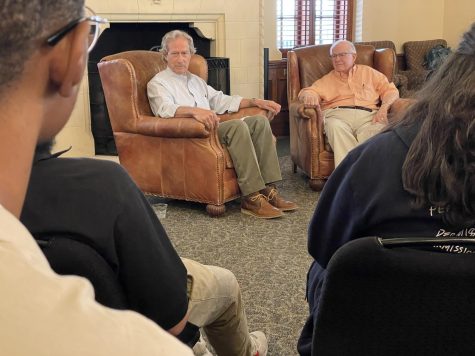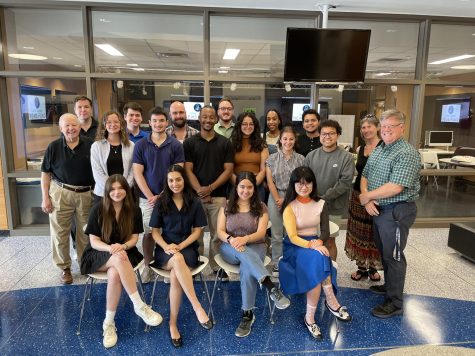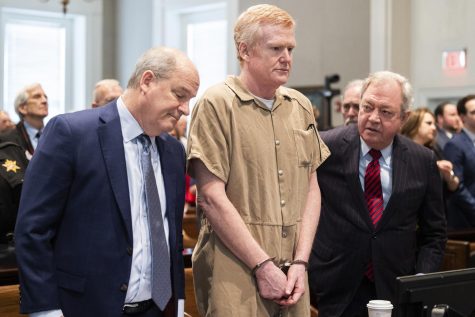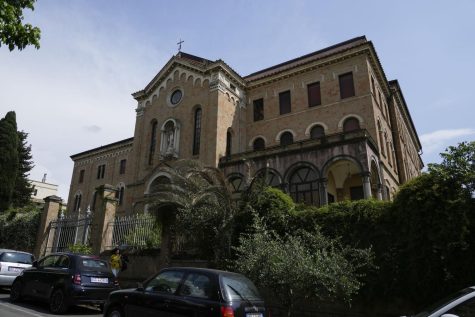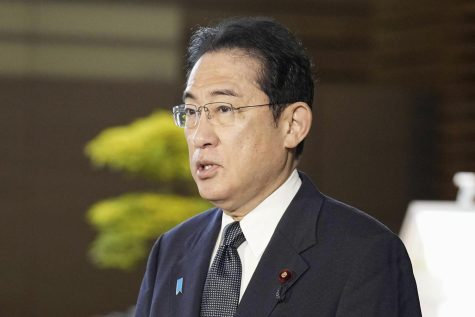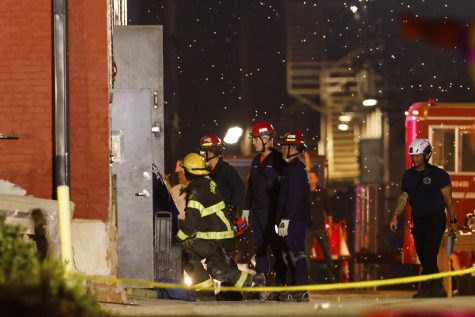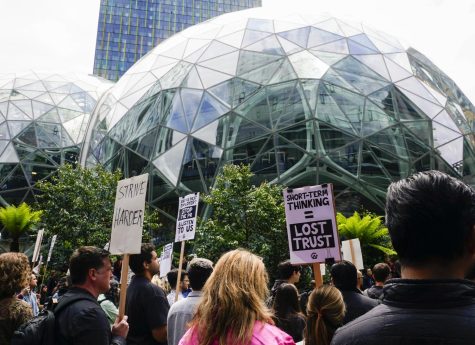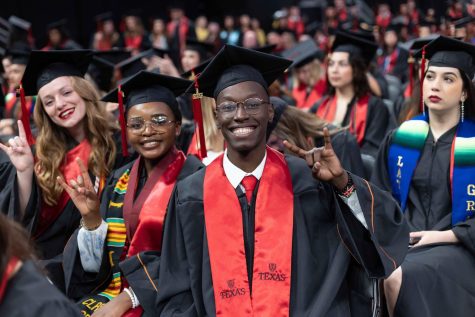Parkland community to organize summer programs to help shooting survivors
Worried parents want to keep Stoneman Douglas High School students busy this summer
Freshman Kacie Shatzkamer poses for a photograph outside of Marjory Stoneman Douglas High School in Parkland, Fla. As summer approaches, parents and community leaders worry that more down time away from friends could trigger stress and depression among survivors of the school’s February massacre. Shatzkamer said that she would likely participate in a setting where she could hang out with her friends and that being around other students who went through the February shooting helps her cope. “Somehow, being at the school when thinking about it makes me feel better as long as several of my friends are there,” said the teen, whose friend Alyssa Alhadeff was killed along with 16 others.
PARKLAND, Fla. — As students count down the days until summer vacation, concerned parents are scrambling to keep survivors of the Marjory Stoneman Douglas High School massacre occupied so they don’t have extra time to relive the nightmare.
Community leaders and parents eager to prevent stress caused by time away from friends are organizing programs so students can socialize, play sports, create art or talk to therapists.
Michelle Siccone said she worries about what to do this summer with her 15-year-old daughter, Aria, who saw the terror-stricken face of a boy through a window as he pounded furiously on her classroom door just before being gunned down. When a SWAT team later led her out of the building, she saw three more bodies in the hallway.
Now, a knock on the door and other everyday events dredge up haunting memories and Siccone doesn’t want her daughter to be alone.
“We have no idea how we will occupy her time. Every day is a concern,” Siccone said.
Freshman Kacie Shatzkamer said she would likely participate in a setting where she could hang out with her friends and that being around other students who went through the February shooting helps her cope.
“Somehow, being at the school when thinking about it makes me feel better as long as several of my friends are there,” said the teen, whose friend Alyssa Alhadeff was killed along with 16 others.
Alexis Grogan, on the other hand, can’t wait to be away from the school.
“I don’t really like coming to school much,” she said. “Things that trigger me would have to be seeing the siblings or girlfriends or friends of the victims who were killed in the shooting.”
Grogan, who turns 16 in June, is planning to do the same thing she does every summer: hang at the beach with friends. “We all have each other’s back, and I’m sure no one will be alone during this time,” she said.
“We really have a group that is coming together to make sure no one is falling through the cracks.”
–Parkland Mayor Christine Hunschofsky
But community leaders recognize that the summer lull could be a danger zone for other students. Parkland Mayor Christine Hunschofsky said planning for summer began not long after the shooting.
“We really have a group that is coming together to make sure no one is falling through the cracks,” Hunschofsky said.
Craig Pugatch, a Fort Lauderdale lawyer and a leader of Mobilizing MSD Alumni, is helping organize the programs, particularly focusing on giving kids an outlet through creative arts.
“The idea is not to impose a program but to draw them out and give them a place to hang out with each other,” Pugatch said. “Drama, for example, some have really gotten into improv comedy. We want to give them a space and not just a lounge and couches, but give them a chance to express themselves.”
Leaders are also taking cues from high schools across the country that have gone through mass shootings, noting how summer provided both a challenge and an opportunity to heal.
In Washington state, community groups organized activities and the YMCA gave free memberships to students and staff. In Ohio, the community held dances and group yoga, and the school worked with a college where many graduating seniors were headed to set up a support group.
Frank DeAngelis, former principal at Colorado’s Columbine High School when 13 died in an April 1999 attack, said his community had few examples to plan the summer after their tragedy, so they improvised. A community theater opened its doors and allowed students to hang out. Churches and athletic teams held programs and counselors were available.
Those things helped, he said, but drug and alcohol use still increased among Columbine survivors.
“I asked some kids why and they said, ‘There are no guarantees in life,’” DeAngelis said. “It is important that the school let parents know that if their kids are struggling, they have a place to turn.”
In Parkland, an organization created by the parents of slain 14-year-old Alaina Petty will host a suicide prevention seminar before summer break.
“We’ve heard things from kids about feeling overwhelmed … and we just want to make sure that they … are able to identify the different feelings,” said Kelly Petty, Alaina’s mother.
One of the biggest challenges may be getting students to access the services. Dozens interviewed by The Associated Press said they didn’t want to share their feelings with a stranger, saying talking with friends was more helpful. That’s why leaders are focusing on outlets like art and theater.
The number of students seeking counseling at the school “has dropped dramatically to a trickle,” said Cindy Arenberg Seltzer, president of the Children’s Services Council of Broward County.
“There are services there where nobody’s going, so it’s hard to know, and we’re trying to get at the root of it,” she said. “I keep struggling with why won’t they go, and I think it is the stigma.”


